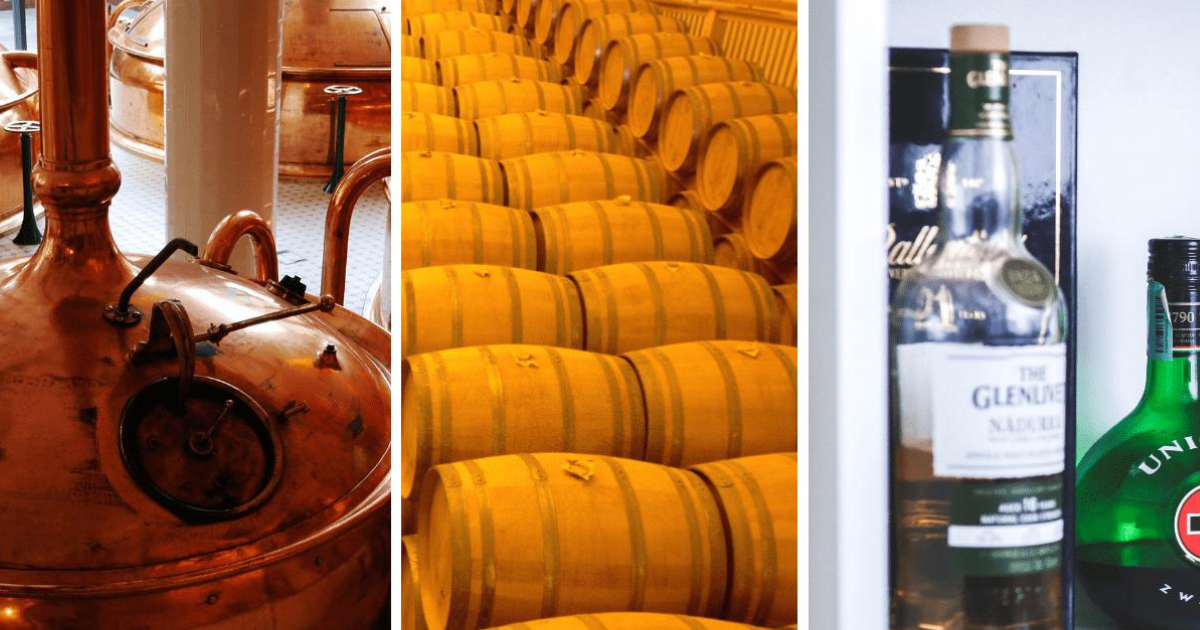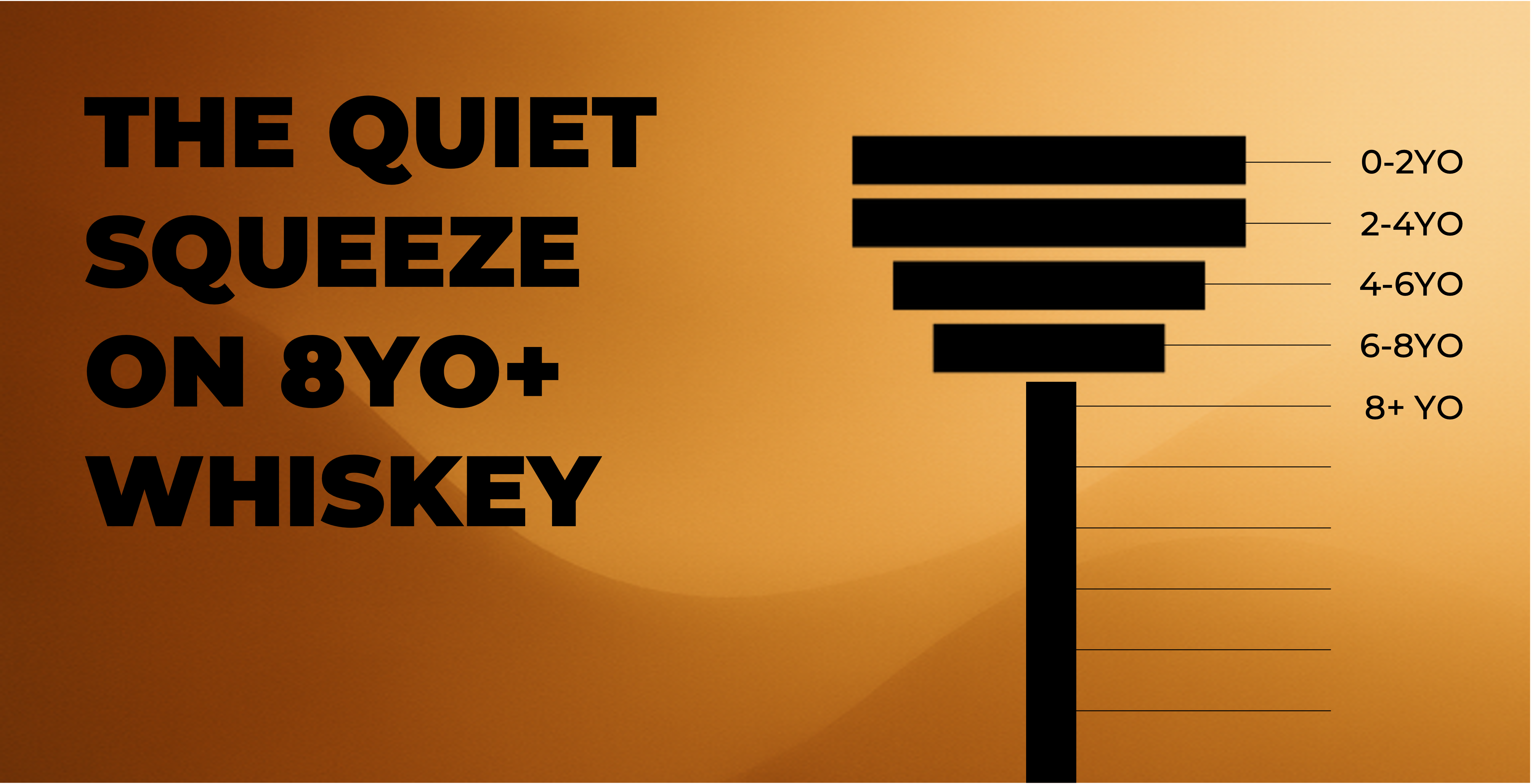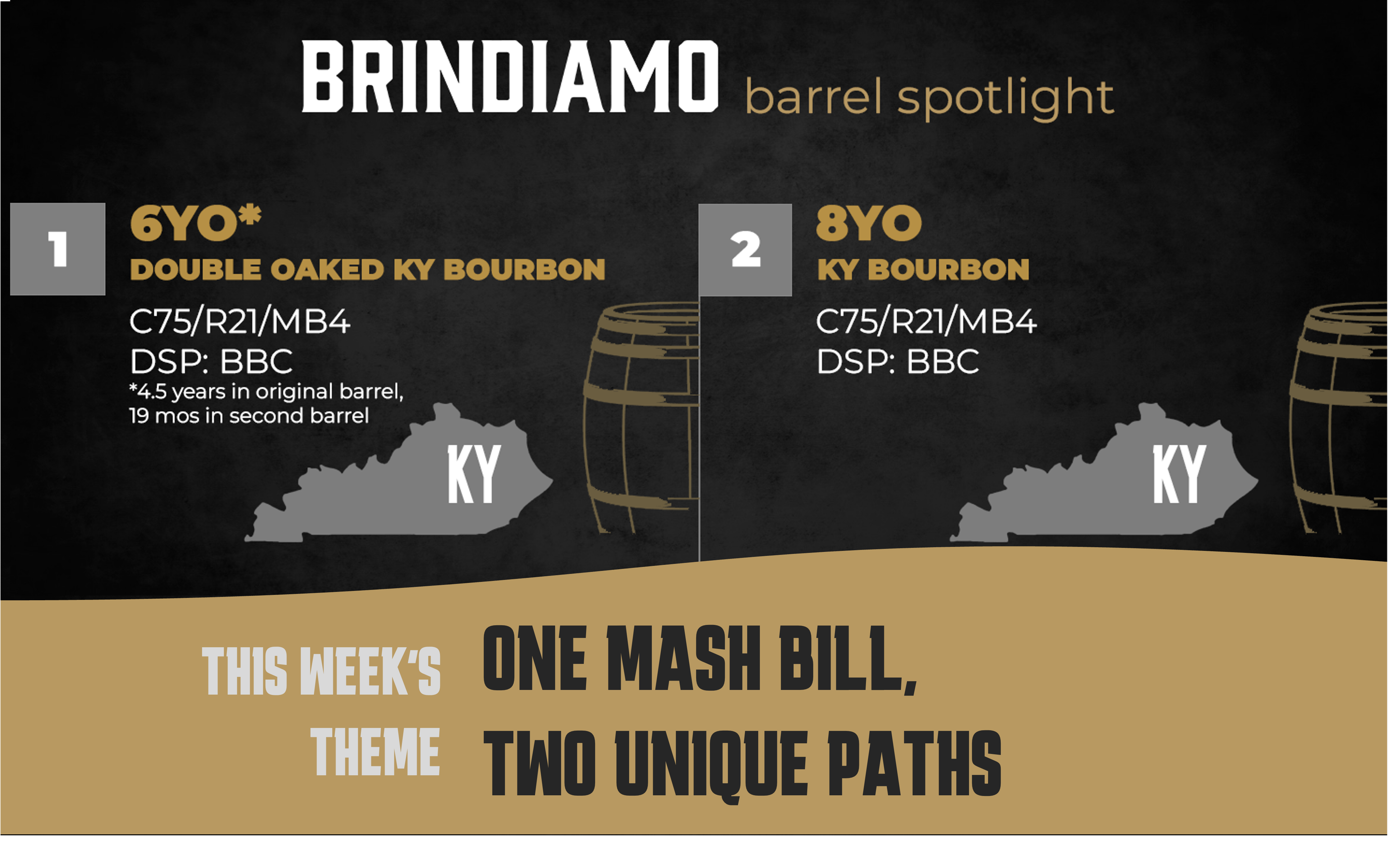The Quiet Squeeze on 8‑Year‑Plus Whiskey
Why mature liquid remains scarce even as younger barrels soften — and what it means for buyers For the last two years, the dominant narrative in bulk...

For anyone looking to produce, sell, import, or supply alcohol, understanding the 3-tiered system is crucial. Following the prohibition era, the U.S. government implemented laws to regulate consumption, prevent monopolies, and manage taxes. It is essential to grasp this system to maximize the potential of your adult beverage business.
The 3-tier system is a structured economic framework established and overseen by the federal government to govern the production, distribution, and manufacturing of beers, wines, and spirits.
Tier One – The Producer: The producer is inclusive of anyone who makes or packages alcohol. Everyone who produces or packages falls under this category regardless of size. So, you’re looking at Anheuser-Bush/InBev and your local brewer being tucked under the same tier-one umbrella.
Tier Two – Distributor: This category includes suppliers and importers of alcohol. There is a bit of a fine line for importers. Importers could technically fall under tier-one as well, but they often appear in this category. Distributors would include companies such as Lipman Brothers or Allied Beverage. Tier two is another demonstration of the breadth and will consist of any company from an international brand to one that is locally owned and operated.
Tier Three – Retailer: Tier Three comprises wholesalers or distributors for “on-premise” and “off-premise” retailers. On-premise retailers are bars or restaurants that sell alcohol to customers and then allow them to consume the beverage on their property. An example of off-premise would include liquor stores, convenience stores, and grocery stores.
Following the Prohibition era, laws were put in place to safeguard consumers and retailers from being tied exclusively to a single manufacturer, known as a “tied-house.” Concerns arose that this arrangement could lead to negative practices, prompting the establishment of a fair marketplace through the implementation of the 3-tiered system. While primarily regulated at the federal level, states retain the authority to make adjustments regarding the classification of entities within specific tiers.
The democratic structure of the United States allows for states to have autonomy in regulating legislation and making amendments to support local economies. Post-prohibition, states were given the authority to determine if brewers could also act as distributors. This led to the establishment of laws that defined the roles of producers, distributors, and sellers, creating a separation between these entities. While some states still operate under a two-tiered system that permits brewers to sell directly to consumers, others base these rights on the size of the producer. Ultimately, this setup allows producers to have their own dedicated space to sell beverages directly to customers.
Understanding the disadvantages would benefit from a look into the advantages. Small distilleries, wineries, and breweries would find it somewhat challenging to afford the warehouse space and transportation needed to service a larger area. A 3-tiered system opens the playing field for other businesses to take charge of this need for distribution and become industry players with an opportunity to take the financial weight off others while still having a chance to earn money. The system also encourages healthy competition and room for growth. When a retailer isn’t contracted to one producer, it gives other wine, beer, and spirit brands a chance to compete is a broader market.
Furthermore, having multiple distribution companies in place helps retailers meet the demand more efficiently. Depending on the business volume, some sellers may benefit from receiving multiple deliveries per day, eliminating the need to order excessive quantities. Larger retailers accustomed to working directly with manufacturers may face challenges in adapting to the distributor system and keeping up with the demands of larger chains.
The legislation of the 3-tiered system is hotly debated but not going anywhere soon. So, there are a few things to help you navigate where your alcohol business stands. The system is in place to manage taxes, prevent monopolies, and regulate alcohol consumption. The first thing you need to do is understand your state’s tiered system regulations. Are there opportunities for producers to expand into supplying? If yes, this could create a new revenue stream for brewers, distillers, or wineries. It adds to the overall brand experience, a trend long seen in the wine industry and now gaining popularity in the beer and spirits realm. Some state laws may even permit self-distribution, which can boost brand recognition. For those operating on a national scale, it's crucial to ensure compliance with the varying alcohol selling, producing, and distributing laws in each state.
Navigating the 3-tiered system may seem daunting for those new to the alcohol beverage industry or acquiring a brand. Rest assured, at Brindiamo Group, we are here to assist you in understanding the process and provide expert guidance and best practices to support the growth of your business. You can read more about our expertise in the alcohol beverage industry by visiting our website.

Why mature liquid remains scarce even as younger barrels soften — and what it means for buyers For the last two years, the dominant narrative in bulk...

As we reflect on 2025, we wanted to take a moment to look back with you. This past year, our team published across more mastheads than ever before —...

Welcome back to the Brindiamo Barrel Spotlight, our weekly email series highlighting the barrels, distilleries, and market dynamics shaping today’s...
.png)
If you're looking to purchase alcohol from a bar, restaurant, grocery store, or gas station, it undergoes a specific process to reach its final...
.png)
Did you know that when it comes to alcohol production, the smaller the barrel the quicker the aging process? Every distiller has different systems...

When you sip a glass of whiskey, you're not just tasting a spirit aged in oak barrels—you're experiencing the agricultural story of the grains that...
Join the conversation
Leave a comment below.